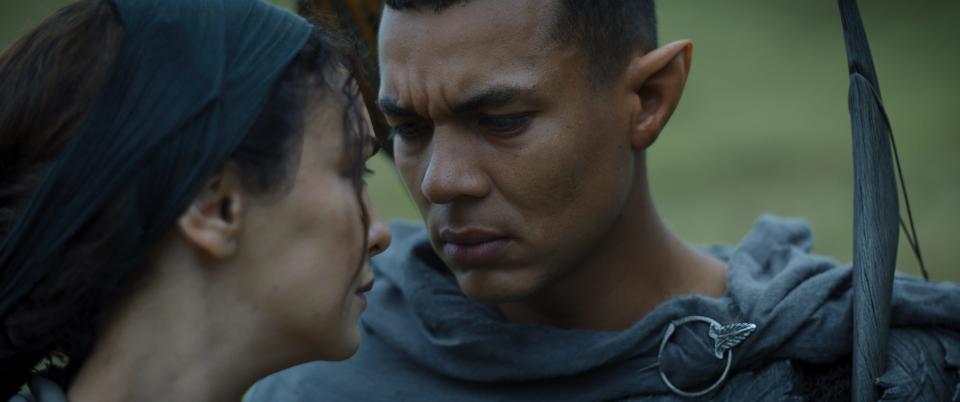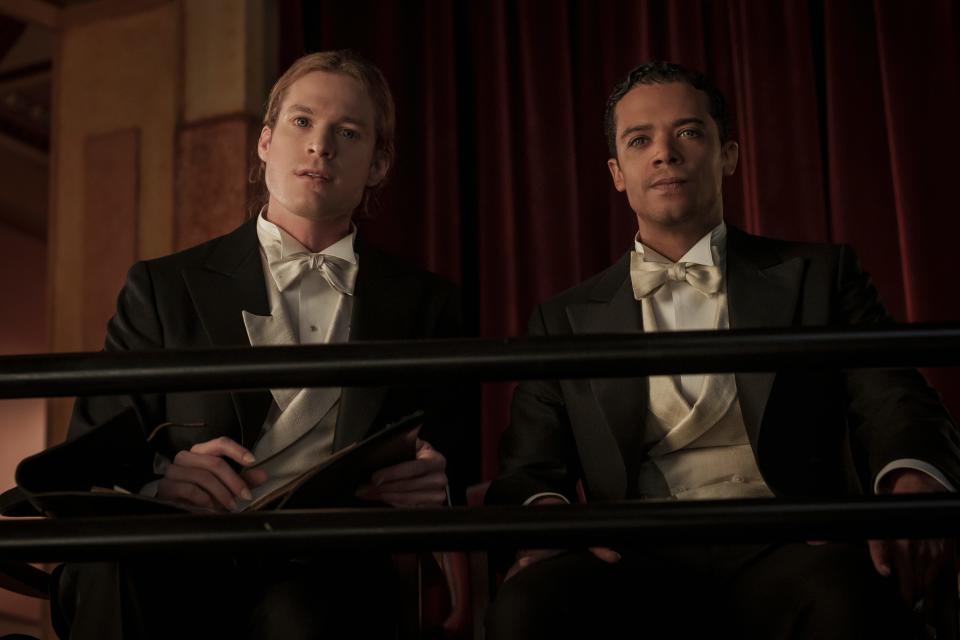Opinion: A Black mermaid, elf or vampire shouldn't be so shocking
Amelia Robinson is the Columbus Dispatch's opinion and engagement editor.
A 17-year-old summed up a point people far beyond her age are missing.
"Black women are coming into power, but we need more. We need more representation. We need more people to show us it's OK to be a Black woman," Penda Seydy during a recent recording of the "Then What Happened?" The Columbus Dispatch podcast I host.
More:Halle Bailey in 'The Little Mermaid' trailer thrills young girls: 'Brown Ariel is cute'
To illustrate her point, the Columbus high school soccer player pointed to the scores and scores of videos she's watched of little Black girls beaming from the possibility after seeing African American actress Halle Bailey as Ariel in a trailer for Disney's "The Little Mermaid."
"'Oh my God, she looks like me.'" Penda, a member of the Black Girl Rising program, said mimicking the younger girls. "It shouldn't be a shock that somebody like you is up there."
She's more than a little right.
A little Black girl should be able to imagine herself as a fictional fish girl the same way little white girls have for generations.
Both sets of girls are worthy of love and should be able to see themselves as anything and everything under the sun, real or imagined.
It is no surprise the Black girls marveled at the Black mermaid.
National Research Group's 2020 #RepresentationMatters report found that two in three Black Americans don’t see themselves or their culture represented on TV or in movies.
Eighty-six percent want to see more representation on screens. Nearly the same percentage of Black people said they believe the way Black Americans are portrayed in the media influences how they are perceived in real life.
More:Two in three Black Americans don't see themselves represented in movies and TV, study says
Representation is not a dirty word
The Black mermaid does not eradicate the love we had for the white one. Red haired Ariel still swims in our collective imaginations. The ocean is big with room for all kinds of merfolks.
Representation opens up the possibilities for people who have been excluded from stories and opportunities for generations intentional and/or due to societal norms.
Penda is just 17 and she knows this.
Based on the backlash Bailey's Ariel has received we know many adults don't get it or are pretending they don't for what ever reason.
The Little Mermaid is not alone in ruffling feathers by asserting Black and brown people can exist as full beings in the real and imagined worlds.

Amazon Prime came to the defense of "Lord of the Rings: The Rings of Power" actors and crew being trolled due to multicultural casting.
"JRR Tolkien created a world which, by definition, is multi-cultural. A world in which free peoples from different races and cultures join together, in fellowship, to defeat the forces of evil. “Rings of Power” reflects that. Our world has never been all white, fantasy has never been all white," the streaming service wrote as part of a Tweet.
Girls: Dear Columbus, Black girls are 'so dope, so beautiful, so radiant' and deserve love
A world where "free peoples from different races and cultures join together, in fellowship, to defeat the forces of evil." As Ariel — all of them — sings, "wish I could be part of that world."
We stand in solidarity with our cast. #YouAreAllWelcomeHere pic.twitter.com/HLIQdyqLmr
— The Lord of the Rings on Prime (@LOTRonPrime) September 7, 2022
The backlash against diverse actors playing roles traditionally played by white ones is rooted in unfounded fear.
Black, brown and female elves and dwarves do not erase white and male elves and dwarves.
Likewise Jacob Anderson, a British actor of Afro-Caribbean descent, playing Louis de Pointe du Lac in AMC's "Interview with the Vampire" does not cancel Brad Pitt, an American actor of mostly European decent, playing that same role in the movie based on Anne Rice's hit book.

Both men are fine actors equally qualified to play a blood sucker.
No vampires have been erased.
The representation shows that Black people can be fictional vampires. Their 'nonexistence' existence does not mean white vampires have to hang up their fictitious fangs.
There is so much more where that came from.
New episodes of #InterviewWithTheVampire premiere Sundays at 10pm on @AMC_TV. Stream them a week early on @AMCPlus. pic.twitter.com/1kbB40gh5W— Interview with the Vampire (@Immortal_AMC) October 3, 2022
Representation is not a complete fix, but it helps open possibilities for marginalized people, kids in particular.
That is true in the mass media and even truer in real-life where Black and Latin workers have historically been underrepresented in higher paying professional occupations, according to the the Economic Policy Institute.
This includes some of the most popular "what I want to be when I grow up" jobs like doctor, lawyer and architect.
Representation reflects and reinforces that we all have a place in the world regardless of skin color, gender, sexual orientation, religion or ability.
We are all real people. We can all play a role.
@candikane__ Sienna loves Ariel #thelittlemermaid #theelittlemermaid #hallebailey #ariel #blindreact #fyp #Sienna #blackgirljoy ♬ original sound - Candie
And when it comes to the Little Mermaid, we can all be fish folk.
If we keep swimming upstream, Penda will one day get her wish. One day, no one will be shocked to see someone who looks like the whole of America up there.
Amelia Robinson is the Columbus Dispatch's opinion and engagement editor.
1AmeliaRobinson on Twitter
This article originally appeared on The Columbus Dispatch: What Little Mermaid, Ring of Power, say about representation| opinion

